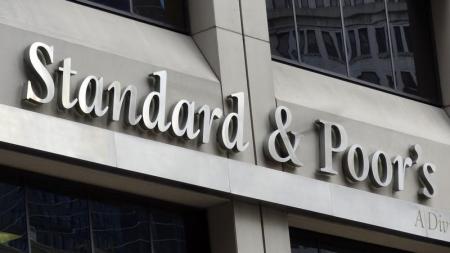Mozambique: Government failed to repay 3.4 billion meticais of debt
Mozambique: IMF deal to help with funding problems, debt vulnerabilities – Standard & Poor’s

File photo: Lusa
An agreement signed between Mozambique and the International Monetary Fund is set to help overcome the financing difficulties and debt vulnerabilities of the country, which is Africa’s second most indebted after Zambia, according to credit rating agency Standard & Poor’s.
Mozambique’s main weakness, S&P notes in an analysis released on Monday, lies in its high level of government debt, which makes it the second most indebted country in the list of 16 sub-Saharan African countries analysed in light of the impact of the Ukraine war on the banking system.
In comments to Lusa, S&P analyst Giulia Filocca explained that despite these difficulties, the recent signing of an IMF programme earlier this month could “help alleviate the current financing difficulties and the vulnerability of the debt,” whose total value currently stands at around 100 percent of gross domestic product.
The vast majority of Mozambique’s public debt is held in foreign currency; this, in addition to making the country more vulnerable to currency shocks, means it has fewer financing options.
“The government has opted to increase the issuance of domestic debt, underwritten by local banks,” Filocca commented to Lusa following the release of the S&P report.
Domestic banks, he noted, are “increasingly financing the budget deficit, increasing the profile of short-term domestic debt and increased the volume of rolling debt in local currency.”
In its report on debt vulnerabilities in Africa, following Russia’s invasion of Ukraine, the rating agency states that the decline in global economic growth and China’s slowdown are having a negative impact on the ability of African emerging markets to accumulate debt.
The fact that in markets such as Egypt, Ghana and South Africa a significant portion of domestic debt is held by foreign investors increases liquidity, but often at the cost of increased sensitivity to changes in global monetary policy, the analysts warn, concluding that many African countries have already entered this post-pandemic period with a high volume of domestic debt and large debt refinancing needs.
The IMF has announced a loan to Mozambique of $470 million (€445 million) under an Extended Credit Line, noting that the authorities are implementing a broad reform agenda, which includes strengthening the management and debts of public companies, improving fiscal risk management and debt transparency, as well as strengthening public finance management and the anti-corruption framework.
The declared aim is to support recovery and reduce public debt.
This is the first time the IMF has financed Mozambique since the so-called ‘hidden debts’ scandal broke in 2016, when it emerged that the government had underwritten billions of dollars in loans taken out by public enterprises, without the knowledge of other state institutions or the country’s creditors. The scandal triggered criminal proceedings in several countries that are ongoing.
Only occasional financial aid has been provided by global institutions since then, following specific disasters such as the Covid-19 pandemic or the cyclones in 2019.













Leave a Reply
Be the First to Comment!
You must be logged in to post a comment.
You must be logged in to post a comment.